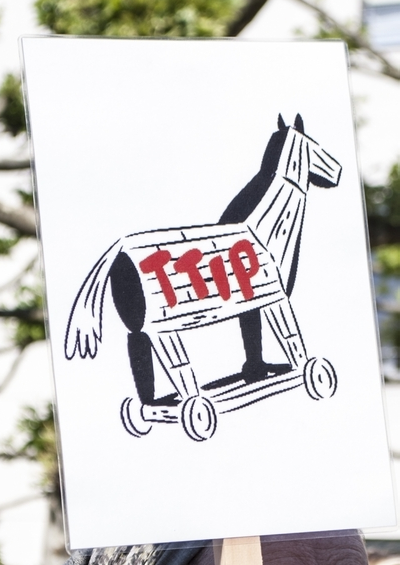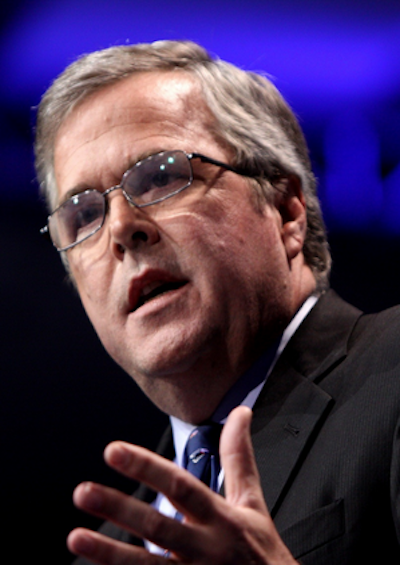TTIP and GMOs: The European Race to Please America
The amateurishness and subservience of European politicians coming to Washington knows no bounds.
January 8, 2015

Bavaria has come a long way since the people living there were seen as a bunch of proverbial country bumpkins. Now, the area known as the home of the cool BMW brand, one of the world’s top technical universities, Oktoberfest and the like.
Bavaria, in short, has become a global brand and Bavarians a whole lot more worldly than they used to be.
Just don’t tell that to Christian Schmidt, Germany’s agriculture minister, a man with deep Bavarian roots. After returning from a trip to Washington, he was agog to tell the German evening news that he had wrestled an intriguing new potential concession from the U.S. side in the battle over GMO labeling.
According to the ever-subservient Mr. Schmidt, his American counterpart, the U.S. Secretary of Agriculture, Tom Vilsack, had (unofficially) come up with a great new idea to overcome a big hurdle in the TTIP negotiations.
American food producers might be amenable to allowing the insertion of some tag in the bar code used for food products. That would allow European consumers to scan the code with their smart phones – et voila, they could thus find out whether or not the product they held in their hands contained genetically modified food elements.
A lousy offer
How generous! In order to please our American ally, all Europeans would be required forthwith not only to own a smartphone, but never to forget it on their trip to the supermarket if they want to get the information they seek.
To which proposition the only viable answer by a European agriculture minister should have been: “Are you kidding?”
Apparently, Mr. Schmidt is quite unaware that the Americans, laudably, are the original proponents of the fundamental idea of transparency and disclosure – and of bringing that idea to the domain of consumer protection many years ago. In keeping with that excellent American idea, Europeans chose to require clearly marked labeling of GM foods.
All of that only to find out that U.S. industry, never much concerned about the more circumspect sides of American law and consumer interests, wants Europeans forthwith to fly blind (unless they bring their smartphones, assuming they own one, of course).
The failure of European politicians
What this case illustrates vividly, and why it bears highlighting, is the provincialism of Europe’s politicians, such as Mr. Schmidt.
Put them on a plane to Washington and they believe they are visiting heaven’s gate. Better yet, in their inner minds, they transform themselves into world statesmen, by virtue of having been received at the presumed heaven’s gate.
That they are there to represent and defend European interests, just as skillfully and mercilessly as any American politician would, quickly falls by the wayside.
With those perverse interior mechanisms of motivation, it is no wonder that, whatever stupidity or transparently self-serving idea is thrown their way, they are keen to rush home with that new information to sell it as a major concession.
With politicians like that, it is no wonder that the eventual TTIP deal may be a very raw one from the perspective of European citizens and consumers indeed.
Takeaways
Read previous

Global Politics
The Jeb Bush Surprise
January 7, 2015
